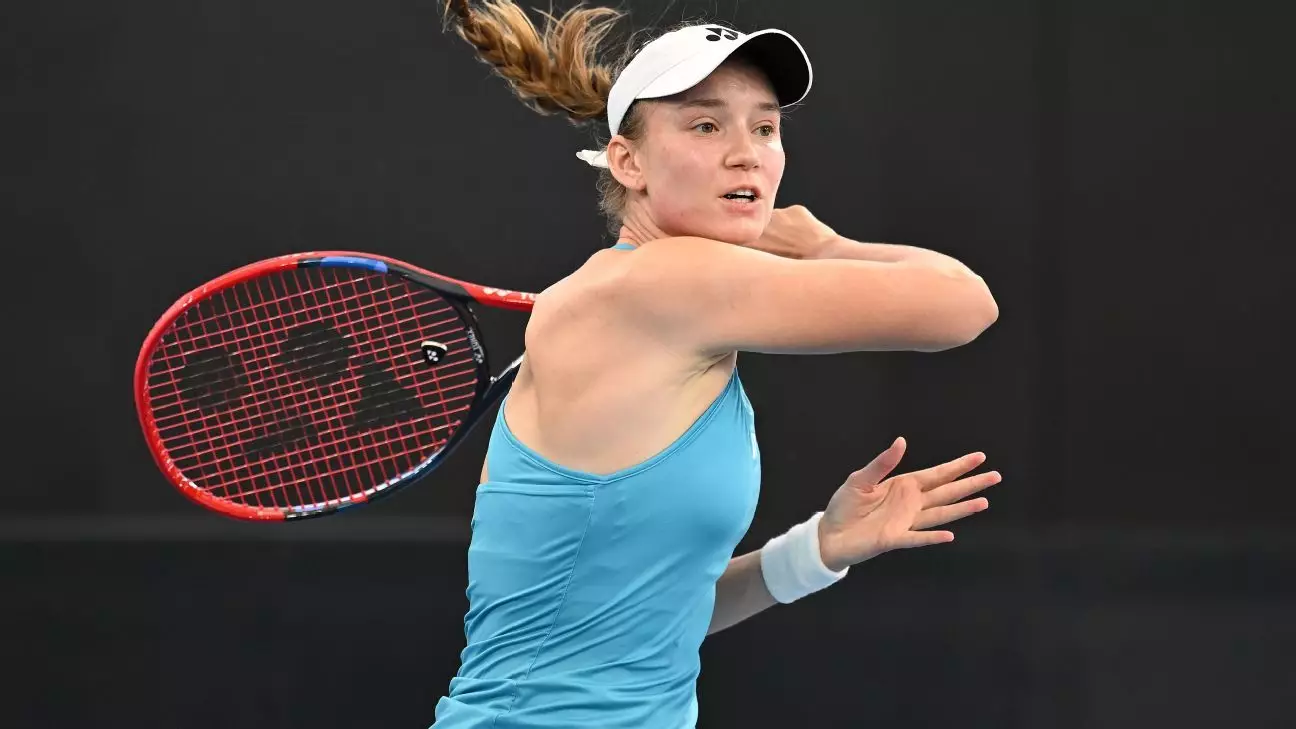In a display of remarkable fortitude and skill, World No. 10 Elena Rybakina showcased why she is a formidable competitor on the tennis circuit with her recent triumph over Kimberly Birrell, securing a 6-3, 7-6 (4) victory in a Billie Jean King Cup qualifier. This win not only affirmed Kazakhstan’s dominance over Australia but also underscored Rybakina’s evolution as a player since her 2022 Wimbledon victory. However, it was not just her prowess that stood out; it was her unyielding spirit in the face of early adversity. After conceding a break early in the match, Rybakina recalibrated her focus and demonstrated a remarkable ability to adapt–a vital trait for any aspiring champion.
Strategic Comeback in a High-Stakes Match
Rybakina’s journey through the match was fraught with challenges, particularly in the second set. At one point, Birrell surged to a commanding 5-1 lead, casting doubt on Rybakina’s ability to mount a comeback. Yet, this was not an ordinary match, nor was she an ordinary player. Rybakina harnessed her powerful forehand and profound tactical understanding of the game to stage an epic comeback. The shift from near defeat to standing victorious reveals not just her technical skills but also her mental toughness. For fans and critics alike, her resilience serves as a reminder of how critical mental fortitude is in high-stakes sports scenarios.
A Team Effort Propelled by Strong Performances
Rybakina’s achievement was amplified by her teammate Yulia Putintseva, who decisively beat Maya Joint, setting a triumphant tone for Kazakhstan. The significance of this teamwork illustrates an essential dynamic in competitive tennis, where individual excellence must harmonize with team strategy. The synergy between Rybakina and Putintseva not only aided in achieving a 2-0 lead but also highlighted Kazakhstan’s potential as an emerging force in women’s tennis. The excitement around their performance signals that Kazakhstan is not merely a participant but a contender in future tournaments.
A Compelling Narrative in the Billie Jean King Cup
This year’s Billie Jean King Cup qualifiers present a captivating narrative, particularly with compelling matchups across various groups. As teams engage in round-robin play, the stakes grow higher with each match, drawing attention from tennis enthusiasts worldwide. For example, Poland’s decision to proceed without their star player Iga Swiatek—who has opted to prioritize training—opens up discussions about player commitments as they navigate personal aspirations with team responsibilities. Additionally, the absence of notable athletes like Jessica Pegula and Danielle Collins from the United States lineup signifies the unpredictability that surrounds such prestigious tournaments.
This ever-evolving landscape of talent and strategy fosters an exhilarating viewing experience, as emerging stars face off against established champions. As the tournament unfolds, every match becomes not just a contest of skill but also a testament to personal resilience and strategic teamwork—a narrative that resonates deeply within the realm of sports. Rybakina and her compatriots are establishing themselves on this stage, and the sporting world eagerly awaits what comes next.

